-
VI CONSEDE, Congresso de Segurança e Democracia, 15-16 de maio de 2018, Reitoria da Universidade de Lisboa
-
Moção 20/30, Partido Socialista, FAUL, 3 de maio de 2018
-
A Segurança Interna no Século XXI: território e população, 17 de janeiro de 2018
-
V Seminário Internacional Ameaças Assimétricas e Planeamento Estratégico “Forecast and Spatial Analysis Model for Public Security – Results”, 13 de dezembro de 2017
-
V Seminário Internacional Ameaças Assimétricas e Planeamento Estratégico “Equilíbrios demográficos e Migrações”, 12 de dezembro de 2017
-
Apresentação em aula do Programa de Doutoramento em Relações Internacionais, intitulada “Terrorismo/Crime Organizado – A Terrível Ameaça”, 24 de novembro de 2017
-
Apresentação em aula do Programa de Doutoramento em Relações Internacionais, intitulada “Investigação em Relações Internacionais: O Projeto SIM4SECURITY”, 23 de novembro de 2017
-
Apresentação em aula do Programa de Doutoramento em Relações Internacionais, intitulada “Tecnologias de Informação Geográfica e Território”, 23 de novembro de 2017
-
Apresentação na 2017 Security, Democracy & Cities Conference “Coproducing Urban Security Policies” , Barcelona, 15-17 November 2017
-
Apresentação no Instituto Universitário Militar, ao 12º Curso de Estudos Africanos, intitulada “Demografia e Segurança. A importância da População, 13 de setembro 2017
-
Conferência MIRDEC-4th, International Academic Conference on Social Science, Multidisciplinary and Globalization Studies, 4 a 7 de julho 2017
-
Conferência OBSERVARE 3rd International Conference, 17 a 19 de maio de 2017
-
Conferência Internacional Riscos, Segurança e Cidadania, 30 e 31 de março de 2017
-
A Segurança Interna no Século XXI: Tendências e Dinâmicas, Academia Militar, 18 de janeiro de 2017
-
V Congresso Português de Demografia, Fundação Calouste Gulbenkian, 6 e 7 de outubro de 2016
“A Segurança como domínio interdisciplinar e multidisciplinar: Demografia e Segurança”
Teresa Rodrigues
- A Segurança como domínio interdisciplinar e multidisciplinar: Demografia e Segurança; Teresa Rodrigues. Presentation [PT] – available here
“Desafios demográficos colocados à Sociedade Portuguesa – Que Portugal temos, quer Portugal teremos, como evitar o indesejável”
Teresa Rodrigues
- Desafios demográficos colocados à Sociedade Portuguesa – Que Portugal temos, quer Portugal teremos, como evitar o indesejável; Teresa Rodrigues. Presentation [PT] – available here
“Dinâmicas demográficas e Segurança: jogo de espelhos”
Teresa Rodrigues
- Dinâmicas demográficas e segurança: jogo de espelhos; Teresa Rodrigues. Presentation [PT] – available here
“Tratamento de dados pessoais pelas forças e serviços de segurança: sociedade de risco, T.I. e o exercício da liberdade em segurança”
André Inácio
- Tratamento de dados pessoas pelas forças e serviços de segurança; André Inácio. Presentation [PT] – available here
“Aplicação de Self-Organizing Maps na análise da criminalidade em Portugal Continental (2011 e 2016)”
Sara Ribeiro, Roberto Henriques, Pedro Cabral, Teresa Rodrigues, Marco Painho
- Aplicação de Self-Organizing Maps na análise da criminaldiade em Portugal Continental; Sara Ribeiro, Roberto Henriques, Pedro Cabral, Teresa Rodrigues, Marco Painho. Presentation [PT] – available here
“Forecast and Spatial Analysis Model for Public Security”
Sara Ribeiro, Marco Painho
- Forecast and Spatial Analysis Model for Public Security; Sara Ribeiro. Presentation [EN] – available here
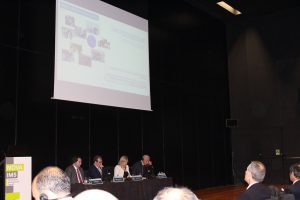
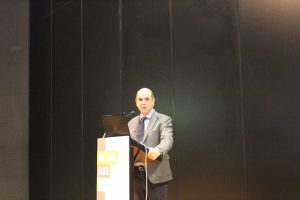
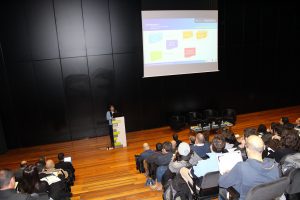
“Equilíbrios demográficos e Migrações”
Teresa Rodrigues
- Equilíbrios demográficos e migrações; Teresa Rodrigues. Presentation [PT] – available here
“Terrorismo/Crime Organizado – A Terrível Ameaça”
André Inácio
- Terrorismo/Crime Organizado – A Terrível Ameaça. Presentation [PT] – available here
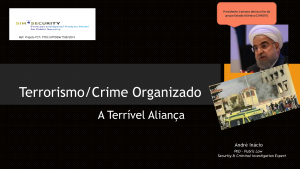
“Investigação em Relações Internacionais: O Projeto SIM4SECURITY”
Sara Ribeiro
- Investigação em Relações Internacionais: O Projeto SIM4SECURITY. Presentation [PT] – available here
“Tecnologias de Informação Geográfica e Território”
Jorge Ferreira
- Tecnologias de Informação Geográfica e Território. Presentation [PT] – available here
“Dinámicas Poblacionales, riesgos y oportunidades – impacto de las Migraciones en la Seguridade Ibérica “
André Inácio, Teresa Rodrigues
- Dinámicas Poblacionales, riesgos y oportunidades – impacto de las migraciones en la seguridade ibérica . Paper [ES] – available here
“Demografia e Segurança. A importância da População”
Teresa Rodrigues
- Demografia e Segurança. A importância da População; Teresa Rodrigues. Presentation [PT] – available here
“Portugal 2040. How demography influences public security planning.”
Sara Ribeiro, Teresa Rodrigues, Jorge Bravo
Abstract:
Population change must be considered as a fundamental predictor in what concerns decision-making applied to public policies. In the next decades, Europe will face major changes in demographic trends, including the workforce reduction, the ageing of societies, and the displacement from mainly rural to mainly urban areas. Such events will influence the government’s political agenda in what regards to public security, as the population variation and distribution dictates the location and size of police stations and the frequency and trajectory of police patrolling.
In order to positively respond to those predictable changes and their specific challenges for public security planning two different perspectives must be taken into account: 1) the urban neighborhoods, more populated, should be considered as priority areas for the intervention of security forces, due to the different forms of criminality affecting the security perception of the population; 2) rural areas, less populated but with elders living alone or with other elders, should also be a target for proximity policing strategies.
This study presents the results of the computed demographic scenarios up to 2040 for Portugal mainland (by sex, age and municipalities), and analyses the impact of the expected changes (namely the double ageing process) for public security planning, especially in the sphere of Portuguese territorial security forces (PSP and GNR). Based on the results of the forecasting exercise, which changes should be undertaken to ensure an optimized geographic distribution of police forces in Portugal?
- Portugal 2040. How demography influences public security planning; Sara Ribeiro, Teresa Rodrigues, Jorge Bravo. Presentation [EN] – available here
“Ageing, migrations and public security planning. Portugal 2040”
Sara Ribeiro, Teresa Rodrigues
Abstract:
Demographic trends influence political stability and security. This work aims to highlight the added value of knowledge coming from demographic forecasting exercise in supporting decision-making within the public policy sector, taking the Portuguese case and public security planning as an example. Portugal is currently the World’s sixth country with the highest ageing rate, with one of the lowest fertility rates. These two indicators are considered as negative factors for social and economic development dynamics of a society, with strong impacts in the planning activities of the public policy sector, including the dimensioning and geographic distribution of security forces.
This work portrays the results of the demographic scenarios prepared under the scope of the SIM4SECURITY (Forecast and Spatial Analysis Model for Public Security, Ref. FCT: PTDC/ATPDEM/1538/2014, http://sim4security.novaims.unl.pt/) project. They combine the results of a cohort-component model to project local (municipalities) demographic characteristics up to 2040, and evaluate its impact when it comes to plan the distribution of the security forces throughout the Portuguese territory for the next decades. The analysis of the influence of the different migration scenarios (optimistic, pessimistic, trend, and no migration) is depicted. What adjustments should be made in terms of policy options as a given population ages?
- Ageing, Migrations and public security planning. Portugal 2040; Sara Ribeiro, Teresa Rodrigues. Presentation [EN] – available here
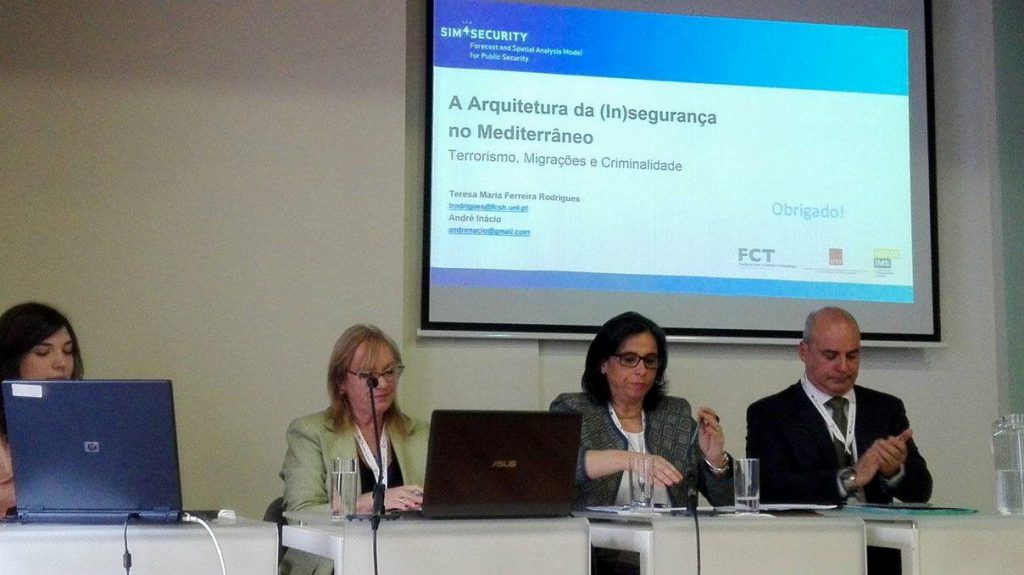


- The Impact of demographic trends on security forces policy – o impacto das tendências demográficas nas políticas de segurança pública, Sara Ribeiro, Pedro Cabral, Jorge Bravo. Presentation [PT] – available here
- The Impact of demographic trends on security forces policy – o impacto das tendências demográficas nas políticas de segurança pública, Sara Ribeiro, Pedro Cabral, Jorge Bravo. Paper [EN] – available here
- A Arquitetura da (In) segurança Regional no Mediterrâneo – Terrorismo, Migrações e Criminalidade, Teresa Rodrigues, André Inácio. Presentation [PT] – available here
- A Arquitetura da (In) segurança Regional no Mediterrâneo – Terrorismo, Migrações e Criminalidade, Teresa Rodrigues, André Inácio. Paper [PT] – available here
- O futuro securitário: a dicotomia público-privado Portugal 2016 – The future of security: the public-private dichotomy Portugal, Catarina Gonçalves. Paper [PT] – available here
2
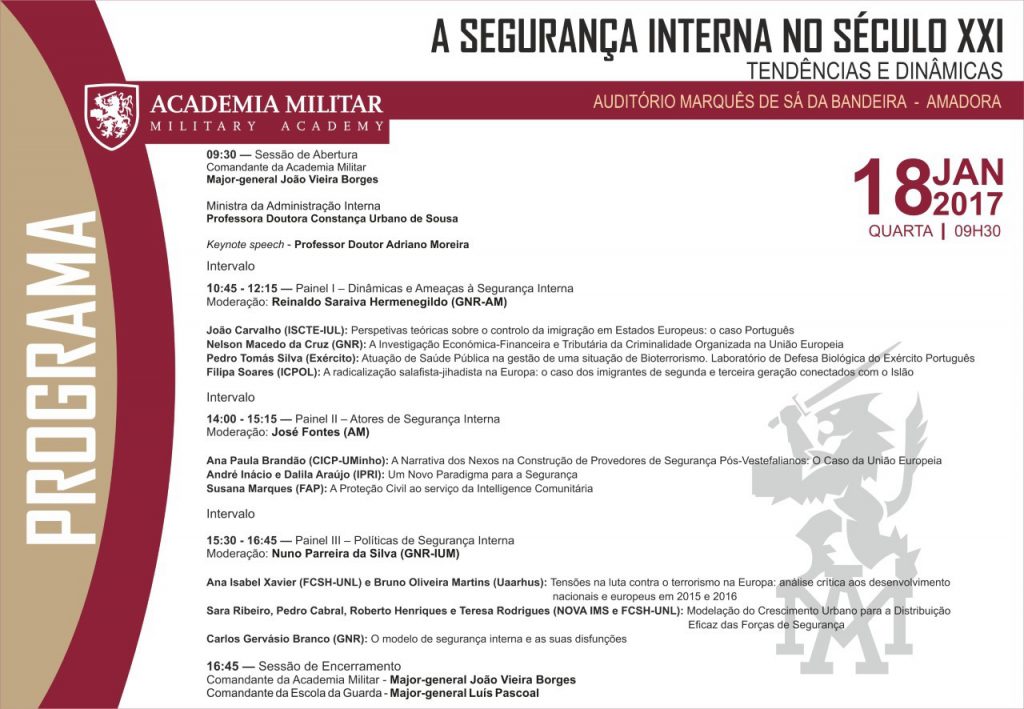

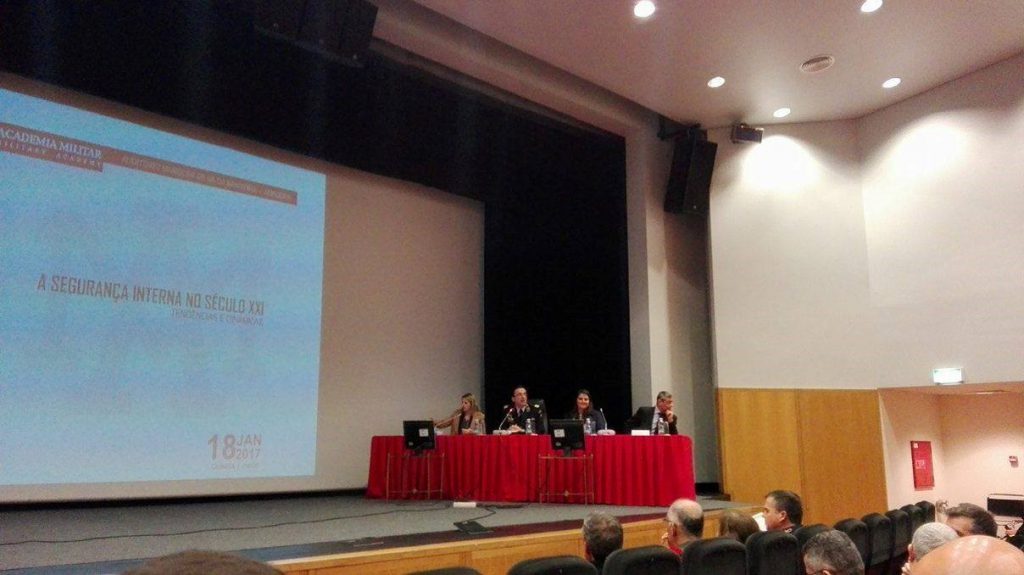
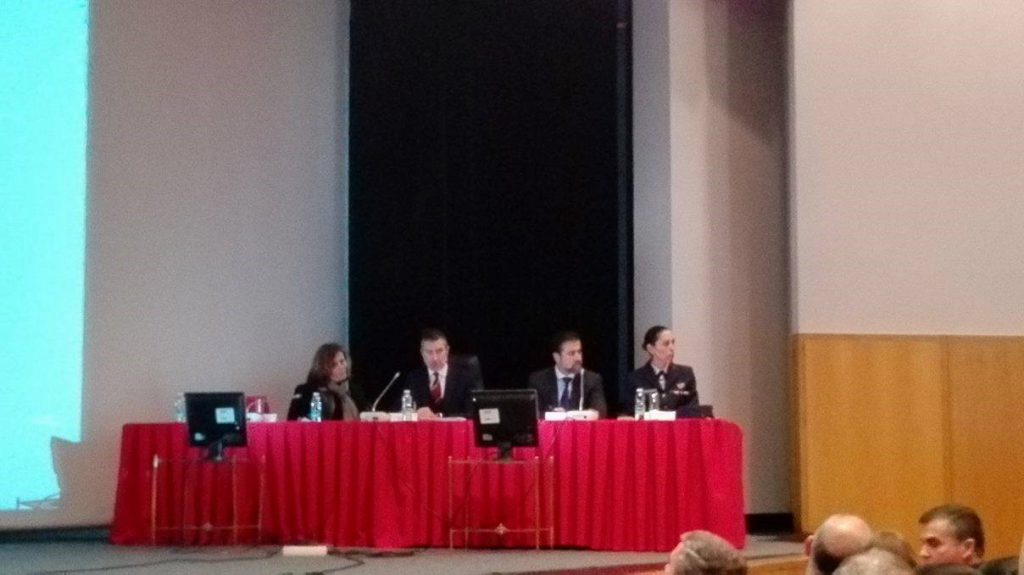
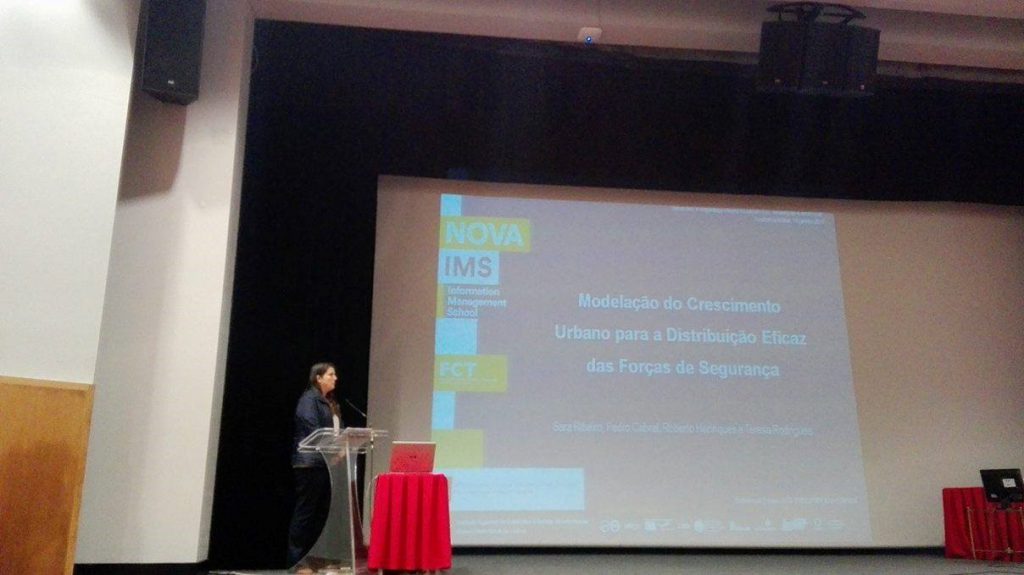
- SIM4SECURITY: Um novo paradigma para a Segurança, André Inácio, Dalila Araújo. Presentation [PT] – available here
- SIM4SECURITY: Um novo paradigma para a Segurança, André Inácio, Dalila Araújo. Paper [PT] – available here
- Modelação do Crescimento Urbano para a Distribuição Eficaz das Forças de Segurança, Sara Ribeiro, Pedro Cabral, Roberto Henriques, Teresa Rodrigues. Presentation [PT] – available here
- Modelação do Crescimento Urbano para a Distribuição Eficaz das Forças de Segurança, Sara Ribeiro, Pedro Cabral, Roberto Henriques, Teresa Rodrigues. Paper [PT] – available here
1

- SIM4SECURITY: Modelo Prospetivo e de Análise Espacial Aplicado à Segurança Interna. Presentation [PT] – available here
- SIM4SECURITY Workshop Program [PT] – available here
